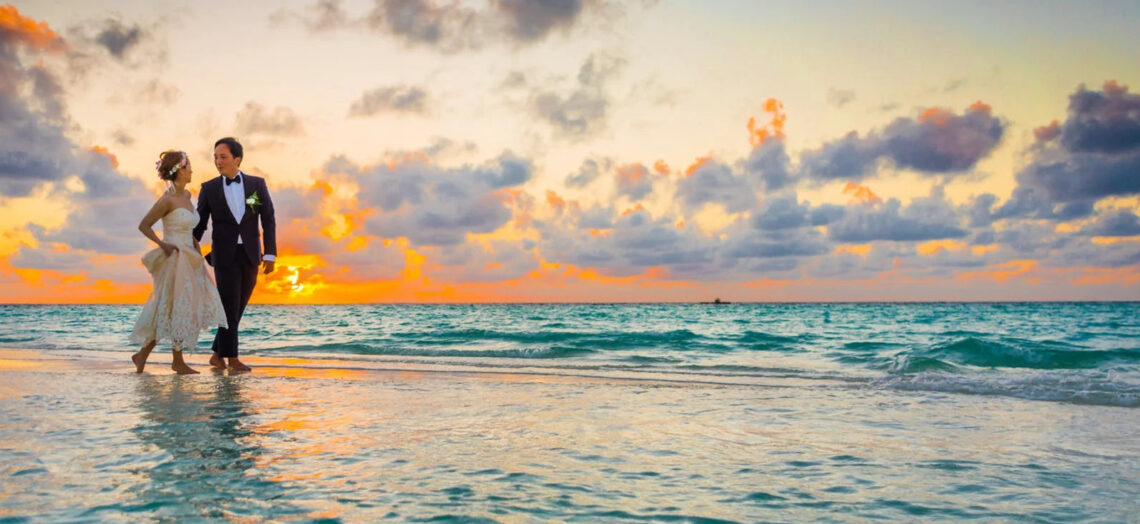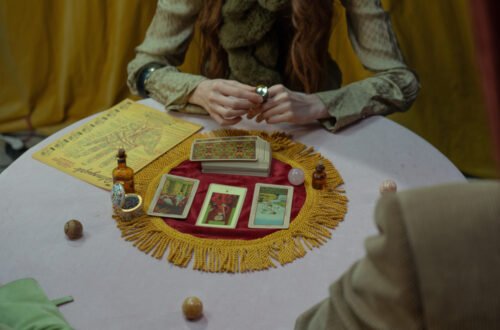
Huna – 7 principles in theory and practice
The word “huna” in the Hawaiian language means “mystery,” in the sense of secret knowledge. Hawaiians have an extremely rich and pictorial language. Interestingly, they have no past or future tense. For them, everything exists in the now. This linguistic construction definitely relieves the burden of worrying about the past and future. Learn the seven basic principles of Huna and apply them to change your life for the better.
Huna traces its roots to Hawaiian shamanism. Drawing from the esoteric knowledge of the Kahunas, today it is available to anyone who can open their mind and heart to it. Its foundations are encapsulated in seven principles. Each principle is associated with one Hawaiian word. They have many meanings and it is often difficult to grasp their essence. That’s why acclaimed Huna author and researcher Serge Kahili King has defined them in complete sentences. I put them in the titles of each principle. The article is only a theoretical and practical introduction to Huna. I refer anyone interested to books or workshops related to this subject. One needs to give oneself time and consciously revisit these principles in order to also adopt them on a subconscious level and allow oneself to create change with them.
Rule one: the world is what you think it is
Many of us are already familiar with this principle, perhaps without necessarily associating it with the Huna. Our thoughts, emotions, and beliefs affect our world. We perceive the physical world subjectively, not objectively. As we change, we change our external world. We are responsible for our worlds, internal and external. Our mind is a powerful and practical tool for influencing our behavior. Behavior, in turn, influences our experiences and the reactions of those around us to us.
This principle also states that everyone experiences the external world in an individual way. Hence, two people can react quite differently to the same event. It also means that your subjective experiences will be an overt indication of whether your thoughts and beliefs serve you.
How do you apply this principle on a daily basis? Be aware that the world is what you think it is. And build positive beliefs about yourself, other people and the outside world.
Principle Two: There are no limitations
All limitations are conventional, created by ourselves. Of course, first you have to develop in yourself the belief that there are no limitations. And then the so-called miracles can happen. Everything is also interconnected, there are no limits. We are interconnected, both with each other and with the Universe. This also applies to the influence of the mind on our body and the environment. This principle refers to boundless freedom, combined with responsibility for ourselves and the world around us.
How do you relate this to everyday life? By changing your thoughts and beliefs, you can pull off limitations. Give yourself the right to what you desire – health, abundance, love, success. Regardless of what others say about it. They live in their worlds, you can consciously create your own.
Third principle: Energy follows attention
This principle, known thousands of years ago to the Hawaiians, is now confirmed by quantum physics. That is why it is so important to be aware of what we are wasting energy on. Also, if at any given moment we want to focus on too many things at once, the scattered energy will work less well. How to apply this on a daily basis? Focus on what you want. Focus on any positives associated with the change you desire. Focus on noticing the change already in other people’s lives and bless it, rather than undercutting your energy with envy.
Fourth principle: The moment of power is now
Fearing the future or worrying about the past only weakens your power. The only thing you have from the past are memories. And it’s them you react to, not the past itself. And yet how you react to the past today is only your choice. By changing your thinking about past events, you change their impact on your life. You can look at everything from the perspective of a growing student, or you can make yourself a victim. That’s your choice. And the future? After all, it hasn’t happened yet! Then there is unlimited potential in it, which you create in the here and now. Instead of thinking that you have no influence on the future and putting it in the hands of the vague notion of “fate,” adopt a different attitude. Look at the future as an unwritten book. Believe that you are the one writing its chapters. Only by being present in the present do you have the power to make things happen.
How to practice this principle on a daily basis? Start living in the present moment, instead of escaping into a world of thoughts entangled in the past or future. The easiest way to bring yourself back to the here and now is to focus on your breathing and to focus on the physical world – observe colors, shapes, listen to sounds, chill life around you. And then focus on consciously acting in your chosen direction. Now, not tomorrow or someday.
Fifth principle: To love is to share happiness
Let me quote from Barry Kaufman’s translation of the proverb “>>Ke aloha, ke alo, ke oha, ka ha<< – Love is being together with someone or something, sharing joy, sharing life. It is not only a feeling, but also a concrete attitude. According to Hawaiian tradition, love, is the most powerful tool for effective action. It is a spiritual power that grows with blessing, appreciation and gratitude. It weakens with criticism and judgment. Hence, it is so important to silence your inner critic. Also in relation to others – if there are no boundaries, by meeting others, we also meet ourselves. By judging others, we also judge ourselves.
How to apply this principle in practice? Practice expressing gratitude! Every evening, write down a list of that day’s blessings for which you are grateful. Even the smallest ones. Also write out a general list of gratitude in your life – even running water, a roof over your head, or the ability to walk and talk count. When meeting other living beings, bless them. It can be a brief blessing of love, health and harmony, or abundance. You will feel for yourself what is needed. Learn to enjoy life. It is happening now, not tomorrow and not yesterday.
Sixth principle: All power comes from within
All power is within us and comes from the infinite source from which we were created. We can forget about it, we can stop feeling that connection or our own power, but they are there all the time. All we need to do is to remind ourselves of them. To find them within ourselves. Connection to the source and connection to one’s own power. According to this principle, also there is no other force that has power over us. It is only our beliefs that cause us to give others power over us. If a dream has arisen in your heart and mind, you have both the power to fulfill it and, of course, to block it. You also need to understand that the world is influenced by many forces. They are not always consistent or in line with your expectations. I most associate Marcus Aurelius’ prayer with this principle: “God, give me patience to come to terms with what I am unable to change. Give me strength to change what I can change. And give me wisdom to distinguish one from the other.”
What about practice? Trust yourself. Feel confidence instead of fear.
Seventh principle: Effectiveness is a measure of truth
To test whether your thoughts and beliefs are true and help you get where you want to go, ask one question – does it work? If not, choose other beliefs, create other solution techniques until they work. From the beginning, Hawaiians have relied on practice. They did not recognize the empty transfer of titles or initiation rituals, the rulers themselves even had to demonstrate their skills in practice. This principle is also based on the Hawaiian word pono. It means good for as many people as possible, seen as authentically experiencing health, happiness and abundance. If your efforts are pono, they affect you, the people around you and the outside world well.
How to relate this to practice? Practice a positive attitude and look forward to the best possible results. Of course, keep in mind that Huna works in conjunction with the use of all seven principles. Positive thinking alone still won’t do much, but it is essential to the flow of Huna’s creative power.




